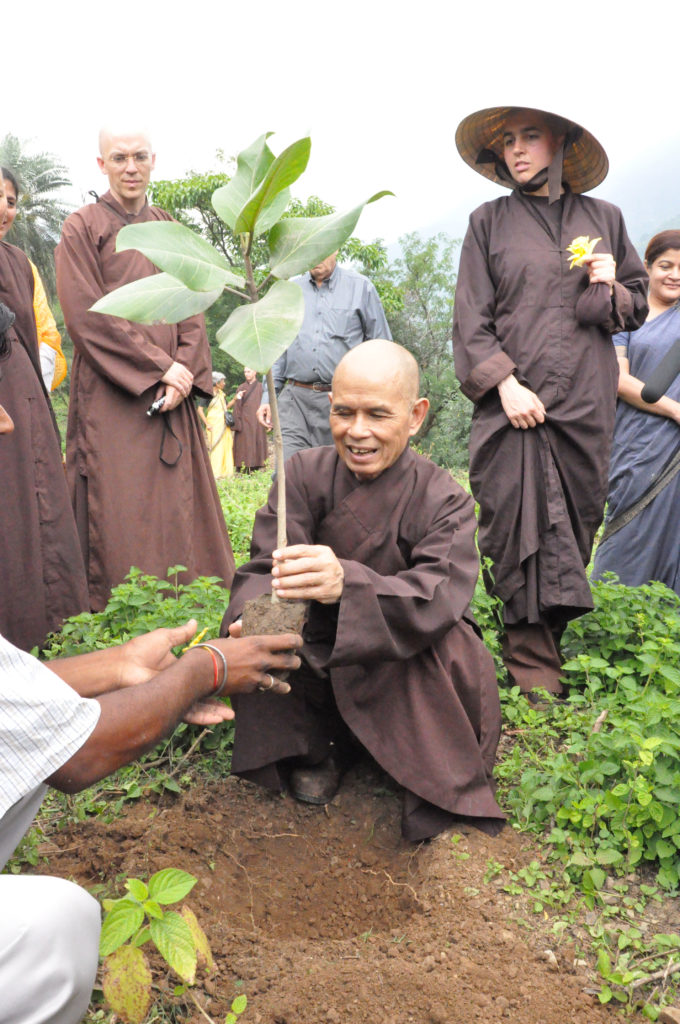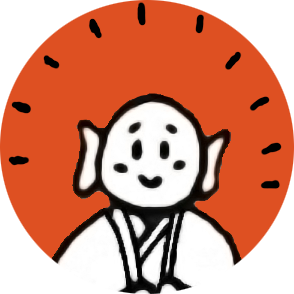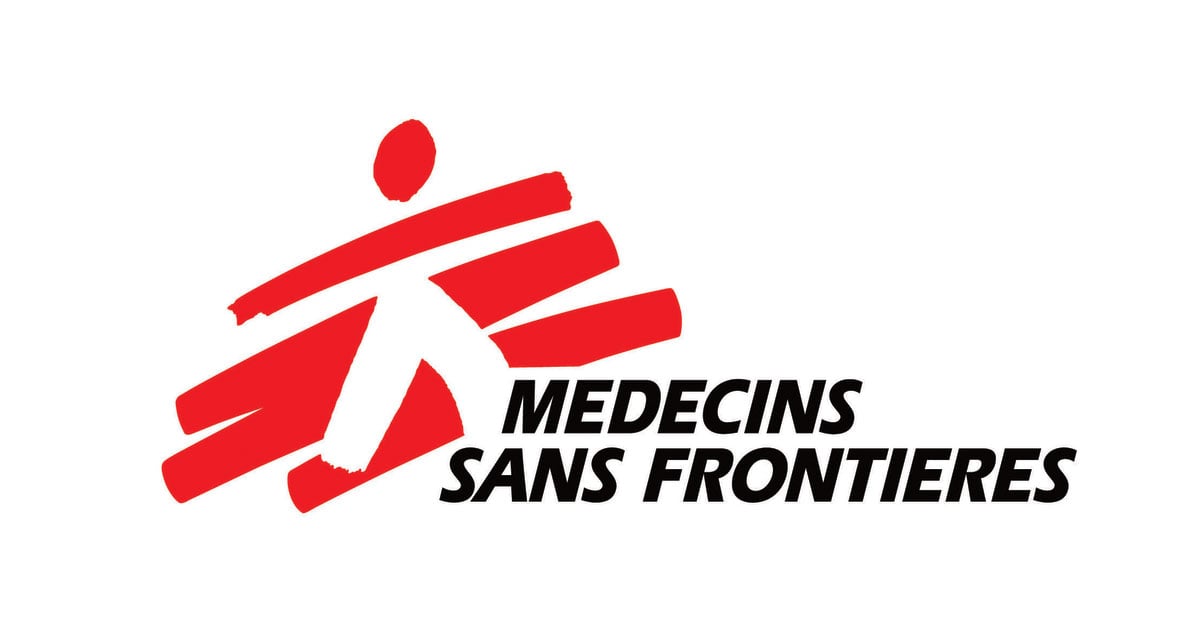Original Vietnamese title: “Trái tim mình có quá nhỏ bé hay không? – Trích Pháp thoại Sư Ông Làng Mai 26/07/2010”
Originally posted by: TCT Phượng Trần (Sakura-Lotus Sangha) https://youtu.be/A10m_6JVBTs
Talk given: July 26, 2010, Plum Village France
Length: 27 minutes 05 seconds
Video’s note: “Đoạn pháp thoại này được trích từ 17 phút đầu và 10 phút cuối của bài pháp thoại Audio với nhan đề “Làm sao để mở rộng trái tim” trên trang nhà Làng Mai, ở link sau: https://langmai.org/wp-content/upload…“
IT IS A REGRET THAT THIS DHARMA TALK IS AVAILABLE ONLY IN AUDIO – THE VIDEO VERSION TO BE UPDATED WHEN MADE AVAILABLE.
In this Dharma talk, Thich Nhat Hanh mentioned the “Four Immeasurable Minds” and the chant that praises the Buddha’s boundless heart for all beings. In order to understand this better, it is important to note that: “In Buddhist psychology, mind and heart are often described by one word- ‘citta.‘” (Jack Kornfield, n.d., You’re invited to find out more here: https://jackkornfield.com/mind-heart/)
In Vietnamese language, the word “tâm” also means both “heart” and “mind”. According to the explanation written in Vietnamese by Tran Dinh Hoanh (2017): “To be precise, ‘tâm’ is the entire system of our human’s mental workings, including the mind (from conscious to subconscious and unconscious), and the heart (emotions, feelings, sentiments, to name only a few). […]. In general, ‘tâm’ is a special word used to connote all the happenings within a human being which condition their intents and actions.“ (Read on here – available only in Vietnamese: https://dotchuoinon.com/2017/05/31/tam-la-gi-long-la-gi/)
This short teaching is the first 17 minutes and the last 10 minutes rolled into one, from a full Dharma talk given on July 26, 2010.
Translator’s note: Thich Nhat Hanh’s students usually call him “Thay”, Vietnamese for “teacher.”
Transcript
[Bell]
[Bell]
[Bell]
Dear Sangha, today is July 26, 2010. We’re in the Middle Hamlet, Plum Village France, in the Summer Retreat 2010. This is the first Dharma talk given in Vietnamese. One day, the Buddha held up a bowl of clear water in one hand, and in his right hand was a handful of salt. He then cast the handful of salt into the bowl of water and used his hand to stir it.
He looked up at the monks, nuns, and the sangha sitting across from him asking, “Dear monks and nuns, dear lay friends, the water in this bowl has now become too salty. How can we drink it? A handful of salt like this is too much— a few grains of salt may do, but a handful of salt for a bowl of water is too much — now it’s unfit to drink. Do you monks, nuns, and lay friends agree that this water now becomes too salty to drink?”
And everyone said, “Dear World-Honored One, yes it does. Now this bowl of water is too salty to drink.“
Then the Buddha continued, “But if, let’s say, I don’t put salt in the bowl of water but I throw it into the river, will the river’s water become salty? Will the water of the river be fit to drink?”
The monks, nuns, and lay friends replied, “A handful of salt is nothing to such a large river. So even after a handful of salt is thrown into the large river, the river’s water remains unsalty; and everybody can still scoop up water from that river to drink. Even if people throw a barrelful — even a boatful, of salt into the river, the river’s water still remains unsalty. It is because the river is large, the river is wide-open.
Then the Buddha taught, “Our heart is the same. If our heart is teeny-tiny, even the littlest things can make us suffer. Things that are not worth it can upset us, make us suffer, or drive us out of our wits. But if our heart is big, if it is large and wide-open, those little things are really not adequate to make us suffer. We can still burst into a hearty laugh, we can still feel happy.“
Among the songs which are usually sung by young Vietnamese children, there’s one song that goes, “I’ve never seen an ocean, I’ve just gotten to see a river. But I heard my Miss Teacher say, the ocean is wide-open.” A river is already so wide-open. Imagine how far more wide-open an ocean can be.
The heart of the Buddha, the heart of the World-Honored One, is one that is very big, very wide-open. For that reason, he had never suffered. People could take it out on him, slander him, attack him, or harm him in many ways but he hadn’t suffered at all because his heart is too wide.
We, on the other hand, when our heart is still too small, even the things that are really not worth it can make us suffer night and day. For that reason, in our mindfulness practice, make sure we practice in such a way that our hearts become bigger and bigger every day. “Heart” here means compassion. This is the only way to go.
Suffering or not suffering does not depend on outer circumstances or the other person. Suffering or not suffering depends on whether our heart is small or big. And to practice mindfulness means to make our heart bigger and bigger every day. And “heart” here means… true love.
In Buddhism, there’s a teaching called “The Four Immeasurables,” or “the Four Immeasurable Minds.” Which means the four qualities of a mind that are boundless. “Immeasurables” means it’s impossible to be gauged by any tools or instruments. It’s just too big to be measured. (Translator’s note: In Vietnamese, “mind” and “heart” are the same word – “tâm.”) And those whose hearts know no bounds are those who no longer suffer.
In Vietnam, on the full moon or new moon days, people usually hold a praising ceremony in Buddhist temples. The ceremony held at full-moon and new-moon midnights is accompanied by a special chant called “Praising Chant.” And in that ceremony, we have a chant that praises the Buddha. And the praise goes, “The Buddha’s heart knows no bounds. The Buddha’s heart encompasses the entire cosmos, the whole universe.”
In Chinese-loanwords with approximate Vietnamese pronunciation, “Đại viên mãn giác, ứng tích Tây càn, tâm bảo thái hư, lượng châu sa giới.” “Tâm bảo thái hư” means “a heart that encompasses the whole cosmos”. “Thái hư” means cosmos. The heart of the Buddha embraces the entire universe. “Lượng châu sa giới.” “Lượng” means “carrying capacity.” “Volume.” The volume of that heart can contain trichiliocosm. As many as the number of grains of sand in the Ganges. “Lượng châu sa giới.” It is praising, “Dear Buddha, you have a heart that is so vast, it’s boundless.”
When we translate this into Vietnamese, it is “The Perfect Understander, who appears in the Saha world, has a heart that encompasses the whole cosmos, and wisdom that shines into the darkest of places in trichiliocosm.” That’s how we translate it.
It’s a praise for the Buddha. Out there, many people also want to learn the Buddha’s way. They have compassion… They practice having compassion not only for their families, they also practice loving everyone in the society the same. Not only do they love their own children, their wife, husband, or partner – they also have compassion for other children and other people around the world. There are those who never call themselves Buddhists but are following the Buddha’s teachings, and their hearts are very big.
In France, there’s an organization of physicians and doctors who volunteer to help relieve the sufferings of the poor residing not only in France but all European countries. And then beyond Europe, they even go to great lengths to work with patients in Africa, Asia, and Oceania. And that organization is called “Doctors Without Borders” – or Médecins Sans Frontières (MSF). Doctors Without Borders. Then many corporations and organizations are inspired and model themselves on this example. And there are lawyers who work to protect and defend the underserved and underprivileged around the world called “Lawyers Without Borders.” Then, there comes “Teachers Without Borders.”
It means they love and want to open their hearts to not only those living in their country but literally everyone. So we have organizations like Teachers Without Borders. This is a real path in life, inspiring many followers. It’s not a dream only Buddhists have. For that reason, if we have pain and suffering that keep gnawing at us, don’t jump to the conclusion that this pain, this suffering, is caused by someone or by a difficult life circumstance. Instead, ask ourselves, “Is it because my heart is too small?”
In most cases, our sufferings manifest for the reason that our hearts are still too small. Like the size of a peanut. If we practice diligently, our hearts will be as big as a lotus flower, then a pumpkin. Then it will reach the size of an elephant, and then a lotus pond. And with time, it’ll become a river and eventually it’ll be as vast as an ocean. This is called “immeasurable mind.”
“Immeasurable mind” means “a heart that can’t be measured“, “a heart that doesn’t have borders“. Love without borders is possible. Actions without borders are something that is really happening. For that reason, each and every one of us should look back at ourselves and ask, “Is my heart too small?”
If our heart is still small, we’ll be prone to suffering. Exasperation and despair will recur on a daily basis, as a matter of course. We should do everything we can so that our hearts become bigger and bigger. That’s the Buddha’s teaching of “The Four Immeasurables.”
We’ve already had a book on this topic – which is the Buddha’s teachings on how to love, called “The Teachings of the Buddha On Love”, with which we can learn ways to widen our hearts every day. (Translator’s note: the book’s titled is later changed into “Teachings On Love”)
Those who inflict sufferings on us are sufferers themselves. When we have a pain or suffering but have no idea how to handle it, we’ll be its victim, first of all. And the people around us will also become its victims. For that reason, we should look at our sufferings, learn to skillfully handle our sufferings, so we do not bring more sufferings to ourselves, as well as the people around us.
One of the best ways to do this is by reflecting that we suffer because the volume of our heart — the ‘carrying capacity’ of our heart, is still too small. Trivial matters that are not really worth it can still easily trouble us. An unkind word or an unkind gesture is already enough to perturb us night and day. And that is because our heart is still too small.
When we can see that everyday our heart is getting bigger and bigger, that’s what the practice is about. Our practice is successful when we see our heart is getting bigger and bigger. What we could never accept in the past can be accepted now. When we look at a practitioner – be it a monk, a nun, or a lay practitioner, we can tell if they’re making good progress on their path of practice simply by seeing whether the room in their heart is getting ventilated, or getting expanded day by day; or whether it is still tiny, whether it is still cramped, whether it still has boundaries.
From my own experience, Thay know if we can open wide our heart, being able to contain all, we’ll enjoy a very deep sense of well-being. And when someone goes to us, they will find it very comfortable because they can go into our heart and sit in there. They find it very comfortable, there’s enough room for them.
[Bell]
To put today’s teaching into practice, we can do this exercise. We can reflect on the heart of the other person. And then look back and reflect on our own heart. For example, if our father is still alive, we should try practicing reflecting to see how his heart really is. Is it big? Maybe our father’s heart is very big but we don’t know. We’ve always thought it’s small and we’ve suffered.
Or we can reflect on the heart of our teacher. We may think his heart is the size of a peanut but it can be very large indeed, and we don’t know. Or we reflect on the heart of our mother. And at some point, we will discover that our mom’s heart is so big. But we haven’t known that all along.
We reflect on the heart of the other person. Sit and look deeply into the heart of the other person. We should have enough time to do this. Don’t spend all your time on doing business and making money. We should have enough time to practice. Practice means to sit, to stop and look deeply. We look deeply into the heart of the other person.
When we realize how big the other person’s heart is, we’ll feel extremely happy. And our heart will naturally become bigger. Very wonderful! We should re-examine our own heart, asking, “Is our heart big?” If it’s already big, we will not suffer at all. It’s very, very clear.

For example, Thay is sitting here. Life also throws at Thay countless difficulties, countless challenges, and all sorts of evils in life — an awful lot of them. But right now in Thay’s heart, there’s not even a tiny bit of blaming or ill will whatsoever. So Thay enjoy a deep sense of well-being and peace.
It’s not that those pettiness, hate and evils aren’t present — they are. But they cannot make Thay suffer at all because the heart is already expanded, and Thay can see the sufferings in them. For that reason, Thay don’t suffer.
And when Thay don’t suffer, Thay can help them in return. Thay can use speeches that aren’t despiteful. Thay can use loving speeches and Thay help them. Thay don’t condemn them, Thay don’t accuse them.
Thay help them see that they’re suffering and there’s a path that leads them out of their sufferings. Thay can speak with the public safety officers, with the authorities, with robbers, thieves, or bandits using loving, compassionate speeches because Thay’s heart already opens wide. There’s no more pain or animosity whatsoever in Thay.
So, let us write a song about a heart that knows no bounds. Let us compose a poem about a heart that knows no bounds. We will draw a heart that knows no bounds. And we will make our heart bigger, and more boundless.
That is the ultimate meaning of our daily practice. The Buddha could do that. And some of his disciples throughout many generations could also do that. And some of our monks, nuns, elder brothers, and elder sisters can also do that. It’ll be our turn. We’ll be able to do that. We’ll have a very beautiful heart — a big heart.
“Tâm lượng” is Vietnamese for “the capacity of the heart“, or “the volume of the heart“. Make sure that we make enough room for everyone in our heart, that everyone can go into it and sit in there, that everyone finds it very comfortable.
In the Bible, there’s a sentence that is superb, which is, “There’s more than enough room in my Father’s home.” “In the house of the Father, there is enough room for everyone.” That’s the heart of a holy being.
Now let us join our palms and chant the name of the Buddha. Make our hearts bigger.
❤ Namo Bụt Thích Ca Mâu Ni (translator’s note: it’s Vietnamese for “Namo Shakyamunaye Buddhaya“)
❤ Namo Bụt Thích Ca Mâu Ni
❤ Namo Bụt Thích Ca Mâu Ni
❤ Namo Bụt Thích Ca Mâu Ni
❤ Namo Bụt Thích Ca Mâu Ni
❤ Namo Bụt Thích Ca Mâu Ni
❤ Namo Bụt Thích Ca Mâu Ni
❤ Namo Bụt Thích Ca Mâu Ni…
Now would you like to take a mindful walk? Or gather together for a group photo? [The whole sangha laughed] Let’s have some fun taking group photos and then walk in meditation together.
[Bell]
[Bell]
[Bell]
References
- Làng Mai, n.d., “Nghi Thức Chúc Tán Rằm và Mồng Một”, https://langmai.org/phat-duong/nghi-thuc-tung-niem/nghi-thuc-chuc-tan-ram-va-mong-mot/
- Plum Village, n.d. Praising the Buddha chant, https://plumvillage.org/library/chants/praising-the-buddha/
- Thich Nhat Hanh’s quote on a handful of salt, retrieved from Goodreads, https://www.goodreads.com/quotes/7556206-if-you-take-a-handful-of-salt-and-pour-it
- Thich Nhat Hanh, Teachings On Love, California, USA: Parallax Press, https://www.parallax.org/product/teachings-on-love/
- Doctors Without Borders, https://www.doctorswithoutborders.org
- Lawyers Without Borders, https://www.lawyerswithoutborders.org
- Teachers Without Borders, https://teacherswithoutborders.org
- Bible Hub, John: 14-2, https://biblehub.com/john/14-2.htm
- Wikipedia, n.d., Lawyers Without Borders, https://en.m.wikipedia.org/wiki/Lawyers_Without_Borders
- Jack Kornfield, n.d., “Mind Heart”, https://jackkornfield.com/mind-heart/
- Tran Dinh Hoanh, 2017, “Tâm là gì? Lòng là gì?”, retrieved from Đọt Chuối Non, https://dotchuoinon.com/2017/05/31/tam-la-gi-long-la-gi/
- https://www.macmillandictionary.com/us/thesaurus-category/american/words-used-to-describe-someone-who-is-easily-annoyed-or-difficult-to-please
- https://www.macmillandictionary.com/us/thesaurus-category/american/patient-and-uncomplaining








Leave a comment